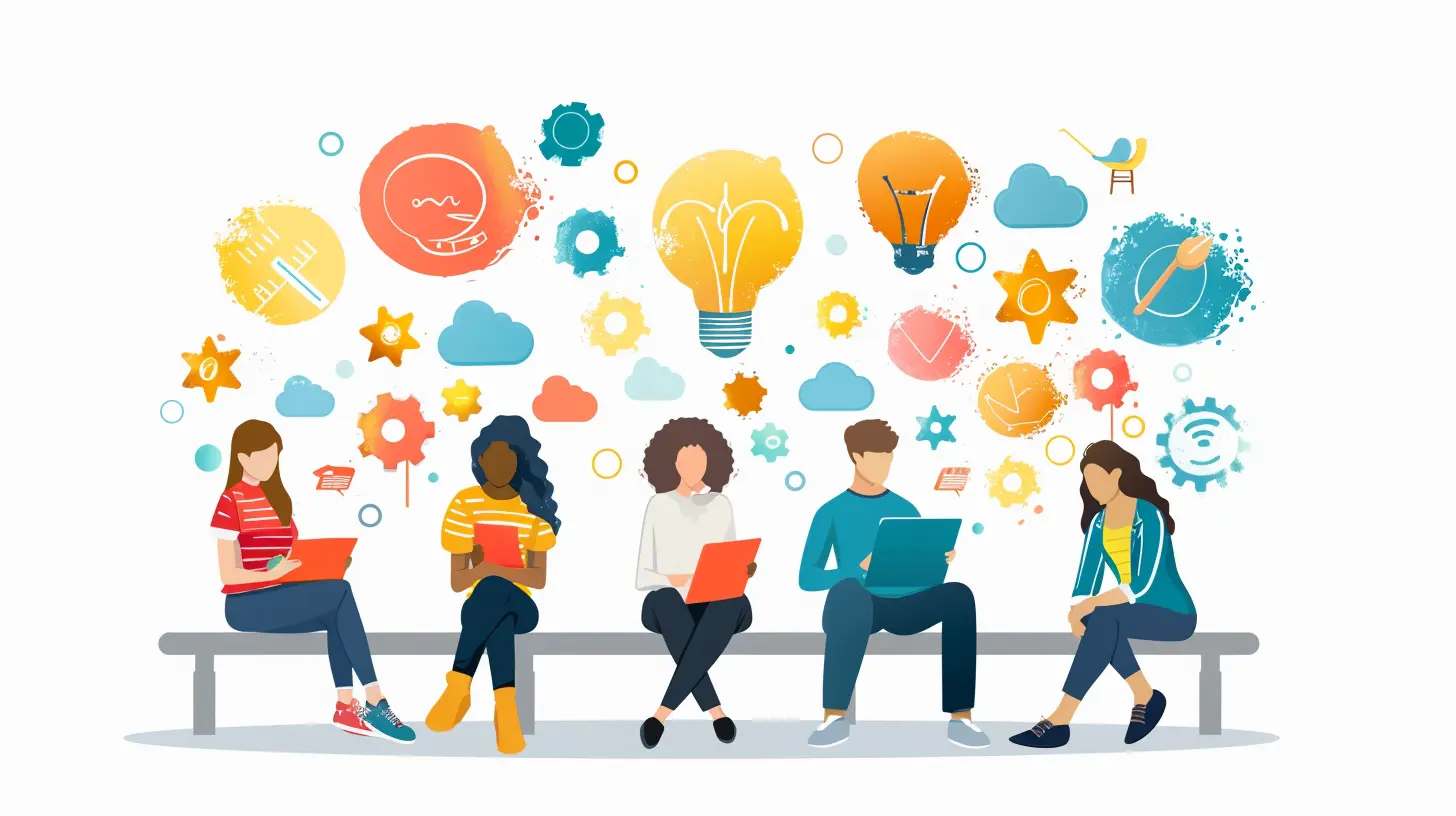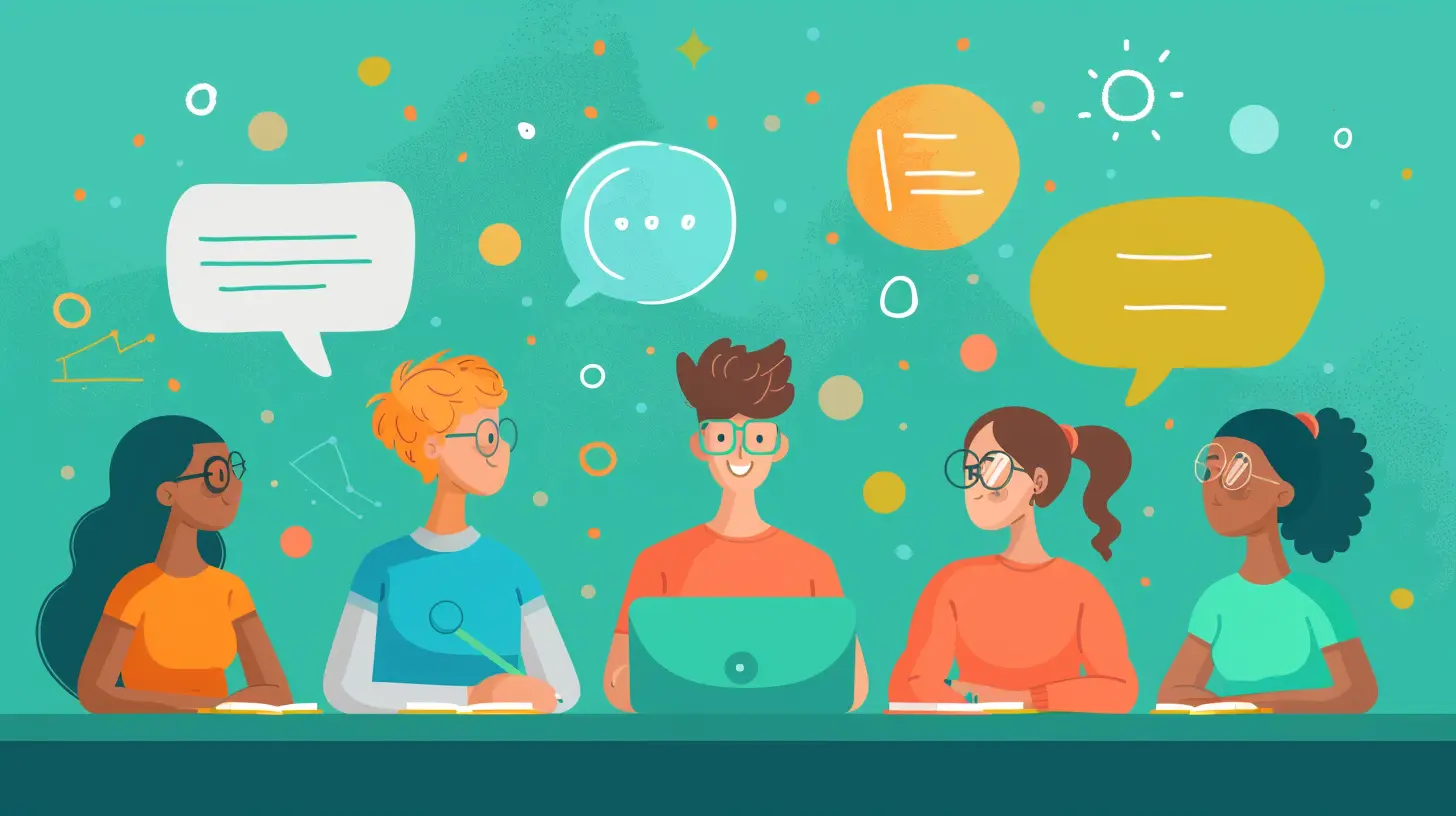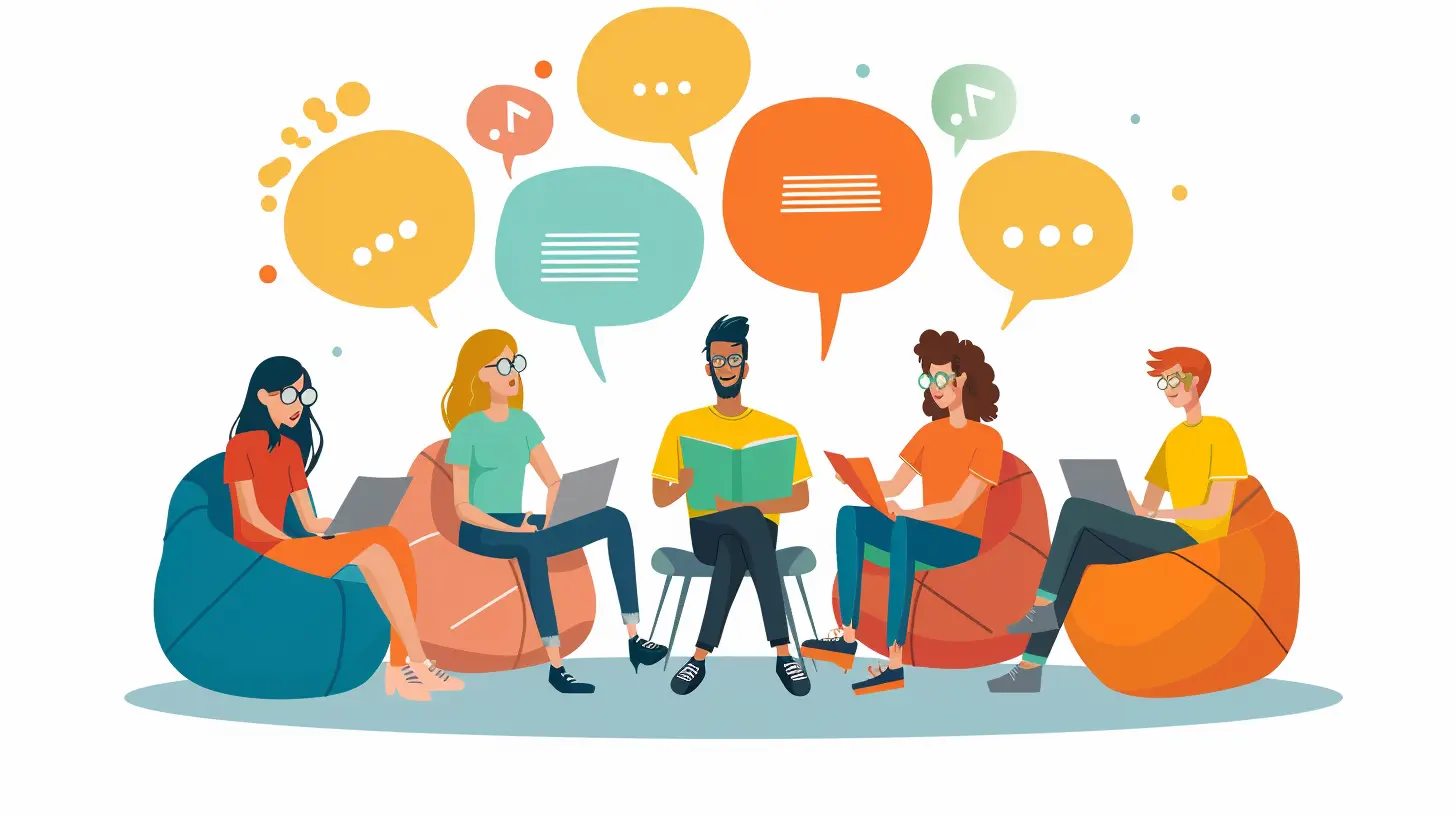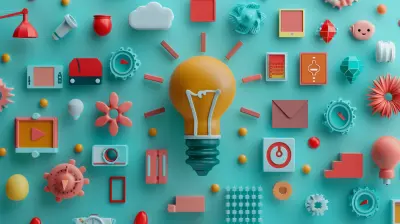24 April 2025
Mastering complex concepts can sometimes feel like trying to solve a giant puzzle with missing pieces. No matter how much students study, certain ideas just don’t seem to click. That’s where peer feedback comes in. When students engage in peer-to-peer discussions, they gain new perspectives, refine their understanding, and strengthen their grasp of even the trickiest topics.
But how exactly does peer feedback help students master complex concepts? Let’s break it down.

What Is Peer Feedback?
Peer feedback is when students review each other’s work and provide constructive comments. Instead of relying solely on teachers for evaluation, students learn from one another. This process fosters a more interactive learning experience and helps students develop critical thinking skills.Think of it this way—learning isn’t just about absorbing information from a textbook or lecture. It’s about processing, questioning, and discussing. Peer feedback creates a space for students to challenge each other’s ideas and clarify misunderstandings.

Why Is Peer Feedback So Effective?
1. Encourages Active Learning
When students actively engage with a subject, they retain information better. Reading or listening passively only goes so far. But when students analyze each other’s work, they must think critically and articulate their thoughts clearly. This active involvement reinforces learning and deepens comprehension.2. Provides Diverse Perspectives
Everyone processes information differently. One student might struggle with a concept that another student finds easy. By exchanging feedback, students get exposed to different viewpoints, allowing them to see a problem from multiple angles. This broadens their understanding and helps them grasp difficult concepts more effectively.3. Improves Communication Skills
Explaining a concept to someone else requires complete understanding. When students give feedback, they must organize their thoughts, present clear arguments, and support their reasoning. This improves their ability to communicate ideas effectively—an essential skill for both academic and professional success.4. Builds Confidence and Independence
Relying solely on teachers for validation can sometimes make students hesitant to trust their own judgment. Peer feedback helps them develop confidence in their analytical skills. When students review and critique each other’s work, they become more independent learners, capable of assessing their own strengths and weaknesses.5. Reinforces Self-Reflection
When students receive feedback from their peers, they gain insight into their mistakes and areas for improvement. This self-reflection encourages them to evaluate their thinking processes and make necessary adjustments. Over time, this habit of self-assessment leads to deeper learning and mastery of complex concepts.
How Peer Feedback Helps in Specific Subjects
1. Mathematics
Math can be challenging, especially when dealing with abstract concepts like calculus or algebra. Peer feedback allows students to explain their problem-solving processes to each other. Sometimes, hearing a concept explained in a different way makes it easier to understand. Additionally, students can spot errors in each other’s calculations, improving accuracy and precision.2. Science
In science subjects, students often struggle with hypotheses, experiments, and data analysis. Peer feedback can help them refine their scientific explanations and improve their ability to present findings logically. Whether it’s biology, chemistry, or physics, discussing concepts with classmates makes scientific reasoning clearer and more comprehensive.3. Writing and Literature
Writing is a skill that improves with feedback. Whether it’s an essay, research paper, or creative writing piece, peer reviews help students identify inconsistencies, strengthen arguments, and enhance clarity. Literature students also benefit from discussing interpretations and thematic analyses with their classmates, which broadens their understanding of texts.4. History and Social Sciences
History is more than just memorizing dates and events—it’s about understanding connections and implications. Peer feedback encourages students to debate historical perspectives, evaluate sources, and refine their arguments. Similarly, in social sciences, discussing theories and case studies with peers deepens comprehension.
Best Practices for Effective Peer Feedback
Not all feedback is helpful. For peer feedback to be truly beneficial, students need to follow certain guidelines.1. Be Specific and Constructive
Vague feedback like “Good job” or “This needs improvement” doesn’t help. Instead, students should provide specific suggestions, such as:- “Your argument is strong, but adding more examples could make it even clearer.”
- “This calculation looks off—double-check the formula to ensure accuracy.”
2. Encourage a Growth Mindset
The goal of feedback isn’t to criticize but to help each other improve. Students should focus on constructive criticism, offering solutions rather than just pointing out mistakes.3. Ask Questions
Encouraging discussion leads to deeper understanding. Instead of simply stating what’s wrong, students can ask questions like:- “What made you choose this approach to solving the problem?”
- “Could you clarify this point? I think I understand, but I want to be sure.”
4. Use the "Praise, Question, Suggest" Method
One effective approach is the “Praise, Question, Suggest” method:- Praise something good about the work.
- Ask a Question to prompt deeper thinking.
- Suggest a way to improve the work.
For example:
- “I really like how clear your argument is. Have you considered adding more data to support your point? Maybe incorporating a recent study would strengthen your analysis.”
5. Review Work with a Learning Mindset
Receiving feedback can sometimes feel personal, but it’s important to remember that it’s meant to help. Encouraging an open mindset allows students to take in constructive criticism without feeling discouraged.How Teachers Can Facilitate Effective Peer Feedback
While peer feedback is valuable, it works best when teachers provide structure and guidance. Here are some ways educators can help:- Set Clear Expectations: Explain what good feedback looks like and provide examples.
- Use Rubrics: Giving students a clear rubric helps them assess work more objectively.
- Create a Safe Environment: Encouraging respectful and supportive feedback ensures students feel comfortable sharing their thoughts.
- Monitor Discussions: Checking in on peer feedback sessions ensures that students engage meaningfully and constructively.





Luella McWain
Peer feedback is a valuable tool in education, fostering collaboration and deeper understanding. By engaging in constructive critique, students not only reinforce their own knowledge but also develop critical thinking skills, making complex concepts more accessible and manageable.
April 26, 2025 at 12:43 PM